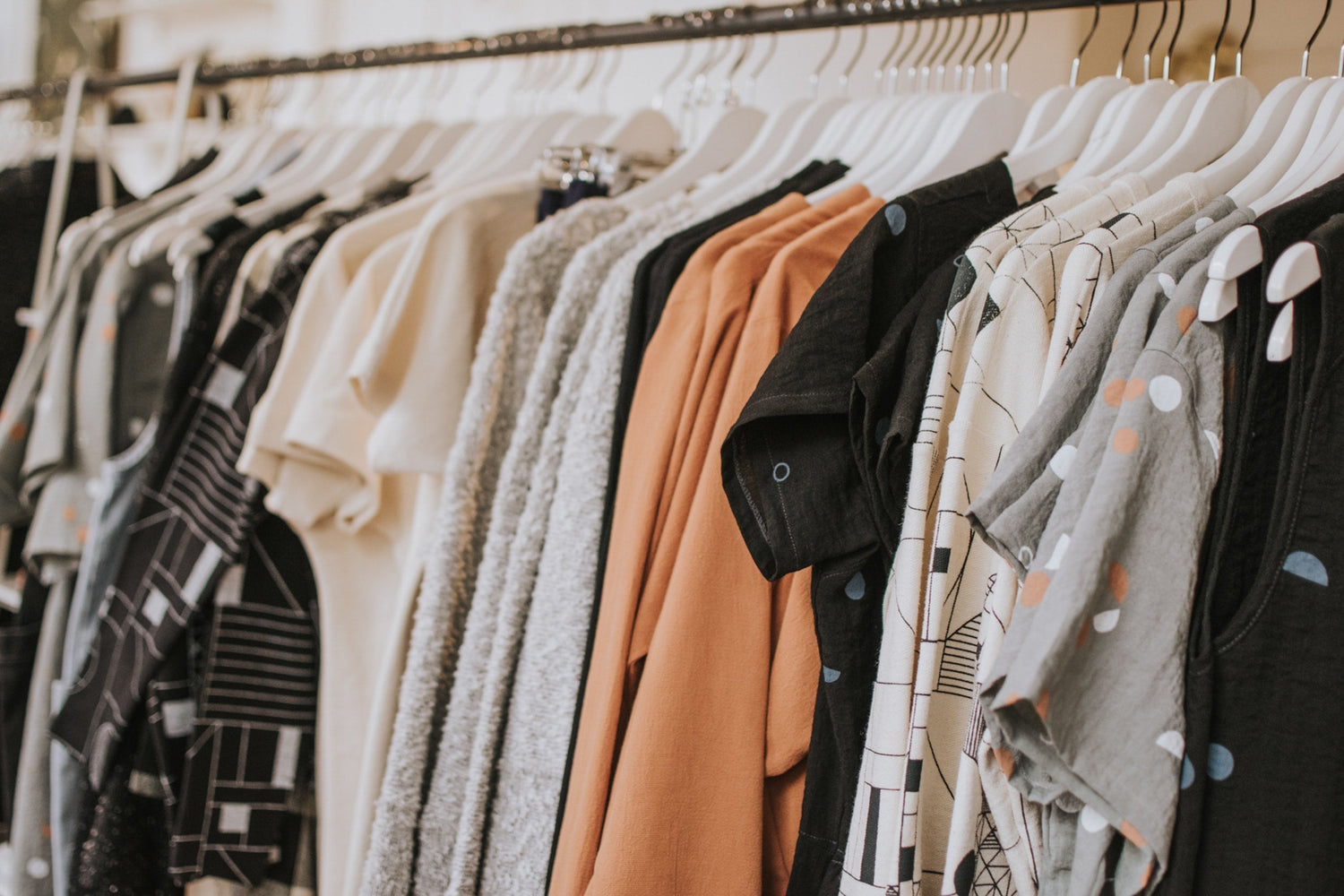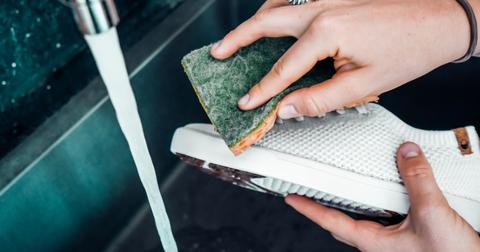"Slow fashion" and "fast fashion" - two terms you've likely seen around social media and the news lately. But what do these terms mean? And how do they relate to the environment and ethical consumption? Here's a start to the conversation, below.

Fast Fashion: A Definition
For decades, fast fashion has been at the forefront of the fashion world. According to the dictionary, fast fashion is:
An approach to the design, creation, and marketing of clothing fashions that emphasizes making fashion trends quickly and cheaply available to consumers.
We see this on the daily, as big companies churn out style after style, encouraging consumption based on fleeting trends and changing seasons. It's often characterized by cheap materials, fast production, and inexpensive end products. Some companies are even launching new styles on a weekly basis! It's been our way of life and evolution of the industry for, well, forever.
Fast Fashion: The Harmful Effects
The effects on the planet and the people who produce fast fashion are alarming.With the race to produce quickly and cheaply, garments are made with toxic chemicals, dyes, and synthetic fabrics that contaminate the water supplies in the countries where they are made, as well as at home when you wash them. Millions of pounds of fast fashion products are thrown into landfills once the style goes out of fashion. Since they are made with toxic chemicals and synthetic fabrics that don't break down, but instead sit in landfills polluting our water and airways. Finally, you can imagine the negative effects of fast fashion on the laborers who make the products. Exposure to toxic chemicals, poor working conditions and low pay create even more more problems for our world.

Slow Fashion: A Defintion:
Slow Fashion is a term that and movement rapidly emerging in the industry. It is a movement towards mindful manufacturing and consumption. It focuses on fair labor and fair trade, using natural and recycled materials, and creating long-lasting, timeless products that sustain the test of time and wear. It was born from the desire to consume only the essentials and to consume better and more ethically.
3 Takeaways:
- Produce less, but above all produce better
- Use eco-friendly, recycled, and bio-based materials in production
- Respect human rights

How does SAOLA fit in?
Here at SAOLA we are focused on creating better, ethically-produced, and environmentally-friendly products. Our styles are timeless, in classic colorways, and produced with quality materials so they last.
When it came to selecting a factory we did our research and landed on one in Vietnam that was already producing footwear for established brands and therefore had social and environmental regulations in place. This allowed us to guarantee satisfactory working conditions for the employees and assure a high quality of production - something that is far from easy when you’re a startup!
Find out more about our commitment to sustainable manufacturing practices and eco-friendly materials, here.
Are you looking for a more sustainable wardrobe?
Do you want to choose a more responsible way of keeping your clothes? It's possible. Find out more about this topic on Porch.com's article "Avoiding Fast Fashion - Get sustainable wardrobe"



